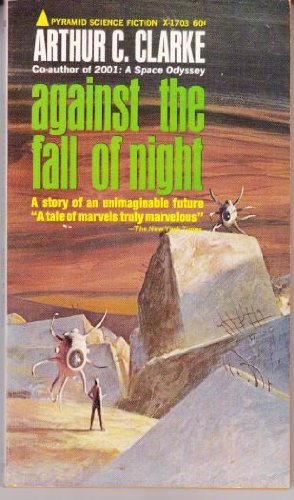Sentinels From Space by Eric Frank Russell
In the science fiction novel of 1953, mutants and their various abilities – especially telepathic – were apparently all the rage. Alfred Bester’s The Demolished Man, the first novel to win the Hugo Award, showed us how difficult a proposition murder could be in a society of mind readers. In Henry Kuttner and C. L. Moore’s Mutant, the “Baldies” referred to in the title had to learn how to live among a society that feared and despised them.
Read More

















COMMENT Was I hinting that? I wasn't aware of it. But now that you mention it.... 🤔
So it sounds like you're hinting Fox may have had three or so different incomplete stories that he stitched together,…
It's hardly a private conversation, Becky. You're welcome to add your 2 cents anytime!
If the state of the arts puzzles you, and you wonder why so many novels are "retellings" and formulaic rework,…
I picked my copy up last week and I can't wait to finish my current book and get started! I…